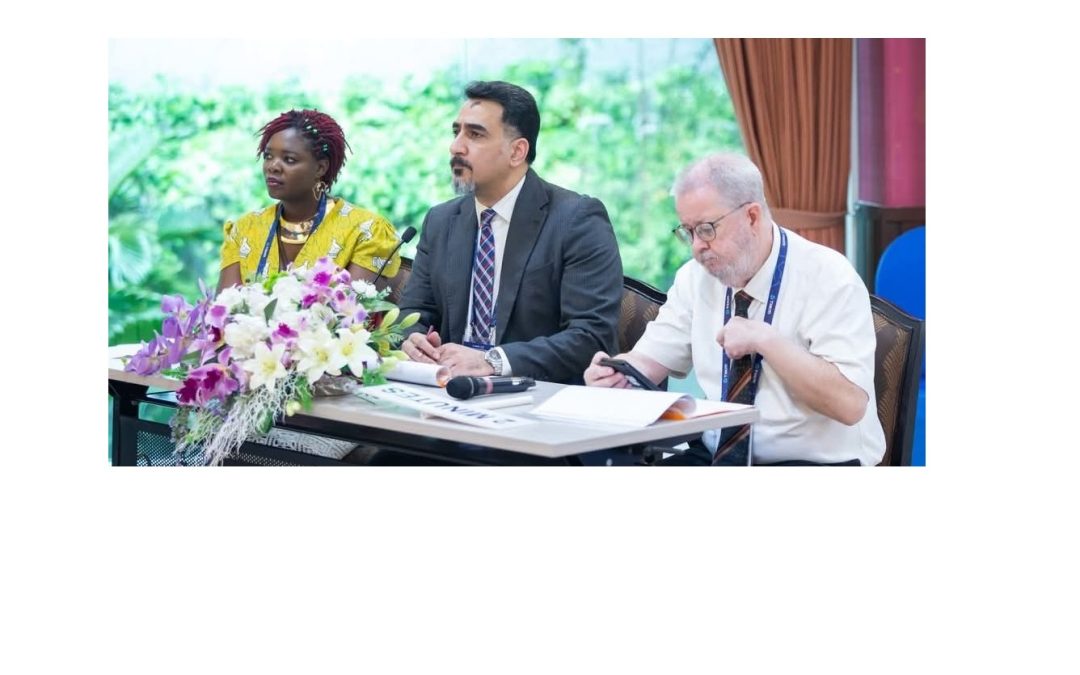
by Lorato | Apr 22, 2025 | Accolades and Achievements, All News, SMU Media, Student Media
Sefako Makgatho Health Sciences University (SMU) has reinforced its international research footprint by co-hosting the prestigious 8th Global Public Health Conference (GLOBEHEAL 2025) in partnership with the International Institute of Knowledge Management (TIIKM). The conference, recently held at the Bangkok Convention Centre in Bangkok, Thailand, focused on “Community Engagement and Empowerment: Strengthening Health Promotion Initiatives.”
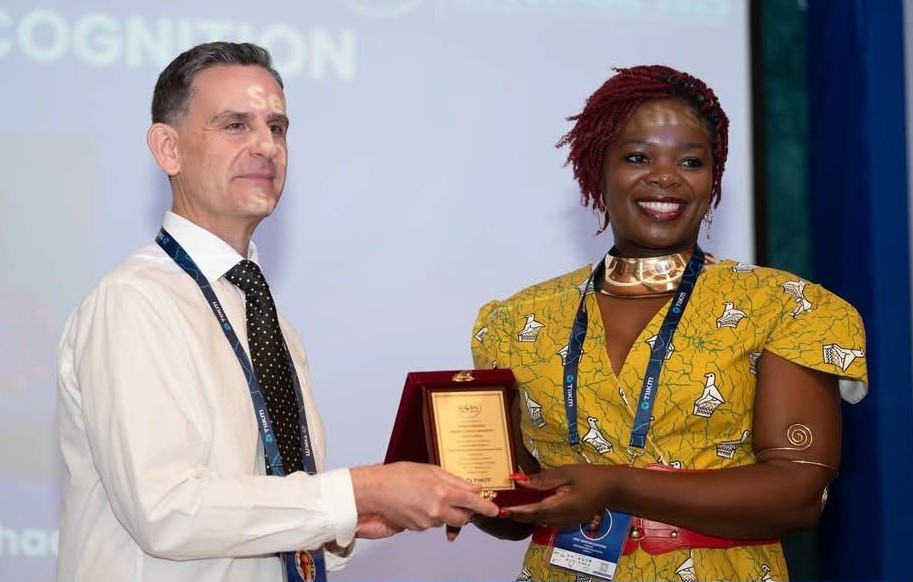 The collaboration was led by Professor Martha Chadyiwa, who initiated discussions between SMU and TIIKM. Under the leadership of Professor Mathildah Mokgatle, the Department of Public Health played a pivotal role, with senior faculty members representing SMU.
The collaboration was led by Professor Martha Chadyiwa, who initiated discussions between SMU and TIIKM. Under the leadership of Professor Mathildah Mokgatle, the Department of Public Health played a pivotal role, with senior faculty members representing SMU.
GLOBEHEAL 2025 provided a platform for SMU to showcase its research, engage with international experts, and establish new academic partnerships. The university’s representatives delivered research presentations, chaired technical sessions, and participated in high-level discussions. SMU co-hosted the conference, which focused on community engagement and empowerment in health promotion initiatives.
As Chadyiwa notes: “The conference provided an exceptional platform for showcasing SMU’s research strengths through Professor Olanrewaju Oladimeji’s plenary speech and our faculty’s diverse presentations, while the leadership roles they assumed elevated our reputation from mere attendees to recognised contributors shaping global health conversations.”
The conference brought together leading public health experts from around the world, with SMU delegates attending both in person and virtually. This hybrid approach enabled the university to showcase its research to over 500 delegates from 30+ countries, further enhancing its global reputation.
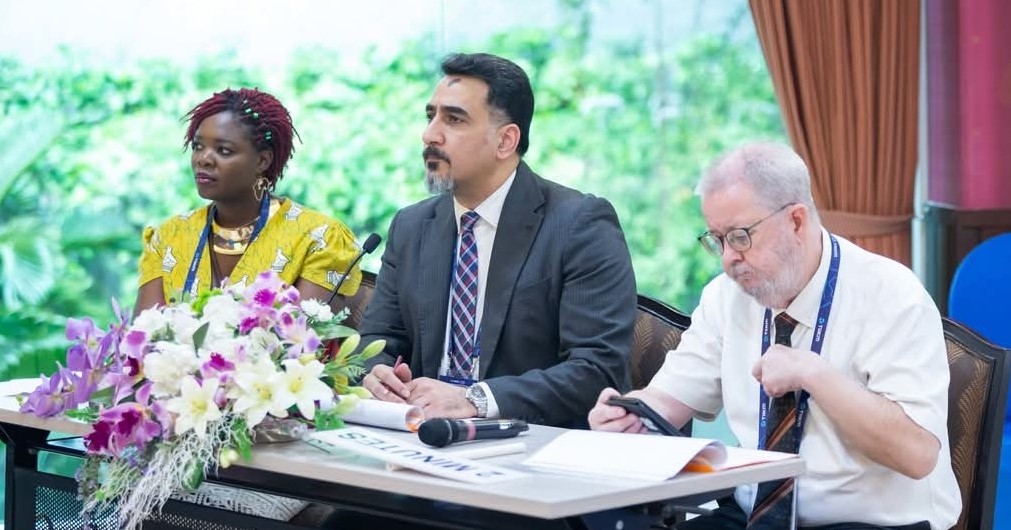
SMU’s partnership with TIIKM expanded its international research network, provided opportunities for student and staff exchange programmes, enhanced its academic credibility, and initiated new collaborations. Research findings from the conference were included in international academic databases, demonstrating the academic impact of the event.
This achievement embodies SMU’s values of innovation, social responsibility, excellence, and integrity. The university’s commitment to social responsibility was evident in its engagement with global health experts, addressing pressing public health challenges. The pursuit of excellence was demonstrated through high-quality research presentations and technical sessions.
The collaboration required meticulous planning, with virtual meetings held to finalise SMU’s contributions, arrange travel logistics, and develop promotional materials. The Research and Internationalisation departments played key roles in coordinating these efforts.
Moving forward, SMU will leverage the relationships and opportunities cultivated at GLOBEHEAL to further its commitment to impactful public health research and education. The university plans to formalise collaborations with international institutions, expand exchange programmes, host a future conference, develop joint publications, and secure research funding.
Chadyiwa says: “GLOBEHEAL 2025 was a transformative experience for SMU. The knowledge shared, networks formed, and research collaborations initiated will drive our public health mission forward.”
The conference has opened doors for joint research, publications, and funding opportunities. SMU’s participation has placed the university on the global stage for public health discussions, demonstrating its commitment to advancing public health research and education.
In conclusion, SMU’s participation in GLOBEHEAL 2025 marked a pivotal moment in its journey towards international academic excellence. As SMU continues to build on this momentum, it is clear that the university will play an increasingly important role in shaping the future of public health research and education.
By Dimakatso Modise

by Lorato | Apr 22, 2025 | Accolades and Achievements, All News, SMU Media, Student Media
In a landmark achievement for Sefako Makgatho Health Sciences University (SMU), PhD candidate Thabo Lesiba Lekgoathi has successfully filed a provisional patent for a novel compound derived from a medicinal plant, demonstrating significant activity against respiratory diseases, including COVID-19. This innovation, developed under the mentorship of Dr Vuyisile Thibane and Professor Stanley Gololo in the Department of Biochemistry and Biotechnology under the School of Science and Technology (SST), exemplifies SMU’s commitment to pioneering research that bridges indigenous knowledge with modern scientific advancements.
 The Technology Transfer Office (TTO) at SMU facilitated the patent filing process, highlighting the university’s dedication to translating research into tangible health solutions. This development not only underscores SMU’s role in addressing pressing health challenges but also positions the institution at the forefront of innovation in the health sciences sector.
The Technology Transfer Office (TTO) at SMU facilitated the patent filing process, highlighting the university’s dedication to translating research into tangible health solutions. This development not only underscores SMU’s role in addressing pressing health challenges but also positions the institution at the forefront of innovation in the health sciences sector.
Lekgoathi’s research centres on Schinus molle, a plant traditionally used in rural communities to treat colds and flu-like symptoms. Through meticulous analysis, he identified geranylgeranyl acetate, a diterpenoid extracted from Schinus molle, which exhibits inhibitory effects on key SARS-CoV-2 protease enzymes, PLpro and Mpro. These enzymes are critical for viral replication and immune system suppression. By inhibiting them, geranylgeranyl acetate disrupts the virus’s ability to mature and allows the immune system to remain active.
“The compound’s ability to inhibit broad targets of the virus makes it unique,” Lekgoathi explains. “Its volatile nature allows for administration through an oil-based formulation which has been enriched with the compound and/or through pelletized extracts which can be deposited into a hot water system for inhalation, potentially offering a natural, accessible treatment for respiratory symptoms associated with SARS-CoV-2 infection.”
The journey from concept to provisional patent was not without challenges. Lekgoathi faced infrastructural limitations and personal hardships, including the loss of loved ones to COVID-19. Despite these obstacles, he remained resolute. “Computational studies helped narrow down the search for a novel active compound, which would have been an expensive exercise through other methods,” he notes.
Securing a provisional patent for this compound is a pivotal step, in safeguarding the intellectual property and facilitating further development. The TTO at SMU played an instrumental role in this process. “The TTO provided essential resources, including legal expertise, ensuring that the patent application was properly structured,” Lekgoathi acknowledges.
Looking ahead, the focus is on conducting analytical tests such as toxicity studies to validate the compound’s efficacy and safety. Exploring various formulations and delivery methods will be crucial to ensure practical application. Lekgoathi envisions potential partnerships with pharmaceutical companies and government agencies to support the development, testing, and commercialisation of this compound. “This innovation has the potential to make a significant contribution to global health by offering a natural, accessible, and effective treatment for respiratory infections,” he asserts.
Dr Esmey Moema, Operations Manager of the SST at SMU, emphasises the broader implications of this achievement. “This accomplishment is a powerful reflection of the school’s evolving research strategy, aligned with innovation-driven outputs and the potential for commercialisation,” she states. “It underscores our commitment to advancing translational research that contributes to health security and economic development.”
This development not only highlights the potential of indigenous plants in modern therapeutics but also positions South Africa’s biotechnology and pharmaceutical industries for growth. By bridging traditional knowledge with scientific research, Lekgoathi’s work exemplifies the transformative impact of integrating cultural heritage with contemporary science.
By Tumelo Moila
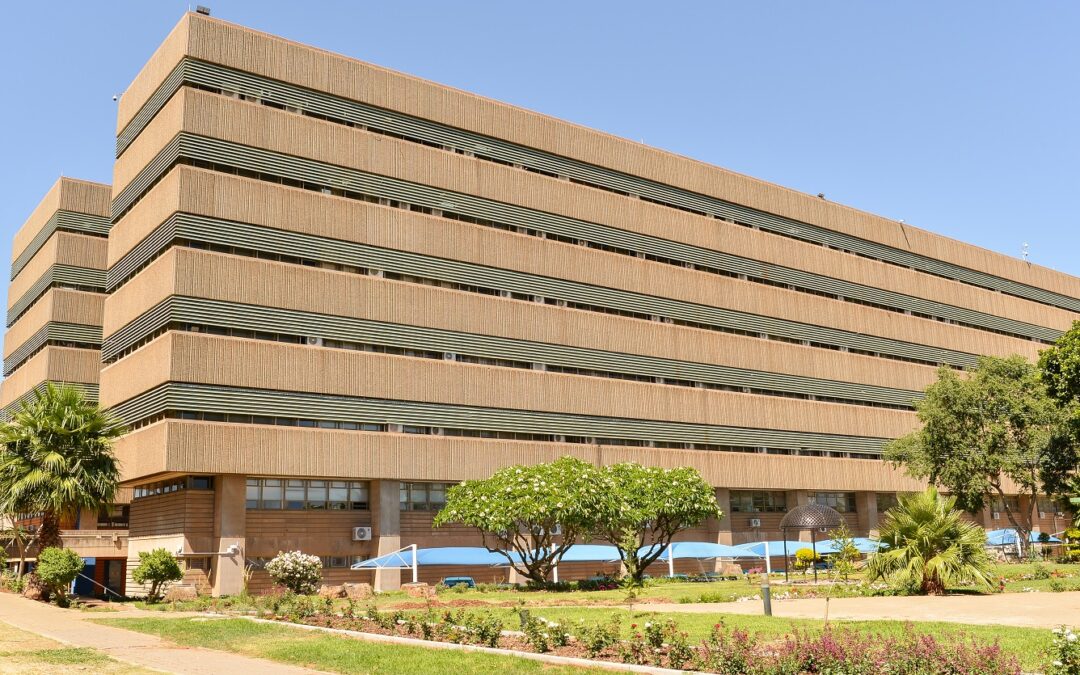
by Lorato | Apr 9, 2025 | Accolades and Achievements, All News, SMU Media, Student Media
In a world where health challenges are increasingly complex and interwoven with social, technological and economic shifts, the need for agile, principled, and visionary healthcare professionals has never been greater. Rising to this challenge is Sefako Makgatho Health Sciences University (SMU)—a university whose impact is not only seen in lecture halls or clinical labs, but in the lives its alumni touch across South Africa and far beyond.
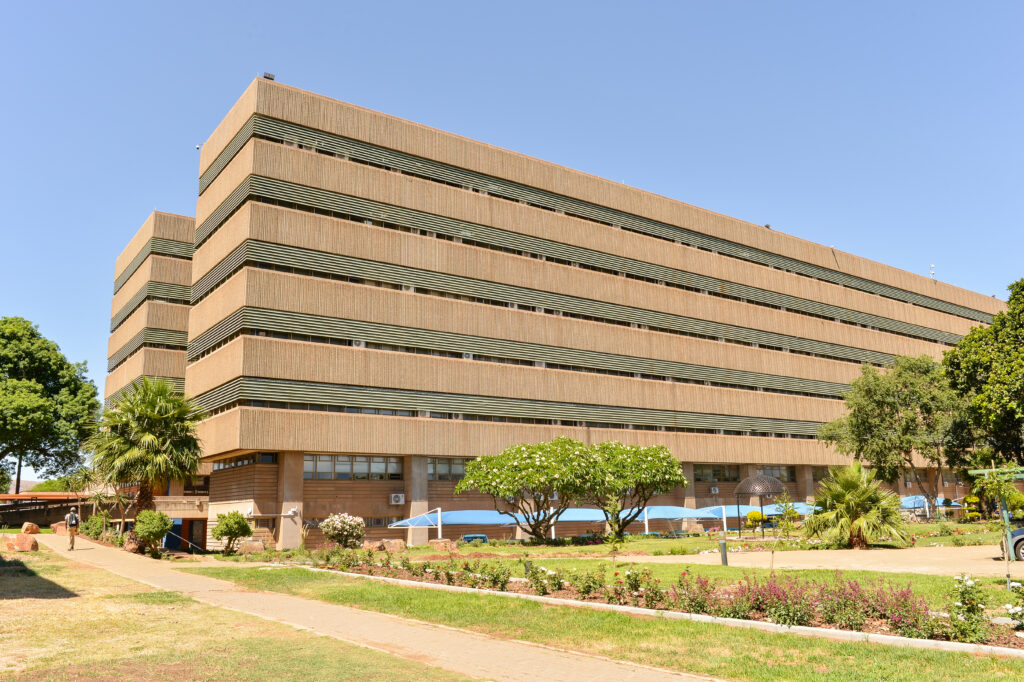 The true measure of a university lies not only in the qualifications it confers but in the calibre of the individuals it sends into the world. SMU’s contribution to healthcare, both nationally and globally, can be traced through the profound influence of its alumni—many of whom occupy key leadership roles, drive medical innovation, and deliver services to communities that have historically been underserved. They are healthcare professionals, scientists, administrators, policymakers and thought leaders. Together, they represent a living, evolving embodiment of SMU’s mission.
The true measure of a university lies not only in the qualifications it confers but in the calibre of the individuals it sends into the world. SMU’s contribution to healthcare, both nationally and globally, can be traced through the profound influence of its alumni—many of whom occupy key leadership roles, drive medical innovation, and deliver services to communities that have historically been underserved. They are healthcare professionals, scientists, administrators, policymakers and thought leaders. Together, they represent a living, evolving embodiment of SMU’s mission.
From the bustling corridors of Dr George Mukhari Academic Hospital, where alumnus Dr Fhatuwani Godfrey Mbara leads as Chief Executive Officer, to the fast-paced world of emergency and maritime medicine championed by Dr Realeboga Sebitso, SMU graduates continue to take up space in critical sectors. Their work extends into private healthcare, too, as seen in the inspiring journey of Drs Innocent and Dikeledi Chauke, who have built a healthcare legacy rooted in excellence and service.
Beyond borders, SMU-trained professionals are making waves across the continent and in global health arenas. One such example is Elizabeth Itotia, a trailblazer who became Kenya’s first female nuclear pharmacist—her pioneering work revolutionising cancer care in her country. Whether identifying new virus variants, developing niche specialisations, or strengthening health systems in resource-limited settings, SMU alumni are increasingly recognised not just as participants in healthcare conversations, but as leaders shaping the global agenda.
But these achievements are not accidental. They are the outcome of a university culture deeply committed to excellence, equity and service. SMU’s curriculum is not only aligned with the demands of modern healthcare—it is embedded in the realities of South African society. Students are trained not just to treat illness, but to understand the systems and structures that produce health inequalities. They are taught to think critically, act ethically, and serve selflessly.
This ethos extends far beyond the academic. At SMU, leadership is nurtured through community engagement, student governance, entrepreneurship, and research. As a result, graduates emerge not only as competent professionals but as compassionate changemakers—individuals ready to lead, adapt and innovate in whichever space they find themselves.
Crucially, SMU alumni carry with them a sense of responsibility. Whether practising in urban hospitals or rural clinics, engaging in public service, or contributing to cutting-edge research, their work is underpinned by a shared value: to serve. And in doing so, they reaffirm SMU’s founding commitment—to improve the health and quality of life of all people, particularly those most in need.
The impact of SMU is, therefore, not confined to its campus. It travels through every patient healed, every system improved, and every life touched by one of its graduates. It is a living legacy, renewed each year as new cohorts enter the profession and old ones rise to new heights.
As SMU looks to the future, its alumni remain its greatest ambassadors—proof that a university rooted in service, excellence, and transformation can indeed shape the world. Their journeys are not only testimonies of personal success but also affirmations of the institution that moulded them. In their hands, the future of healthcare is not only possible—it is already unfolding.
By Tshimangadzo Mphaphuli
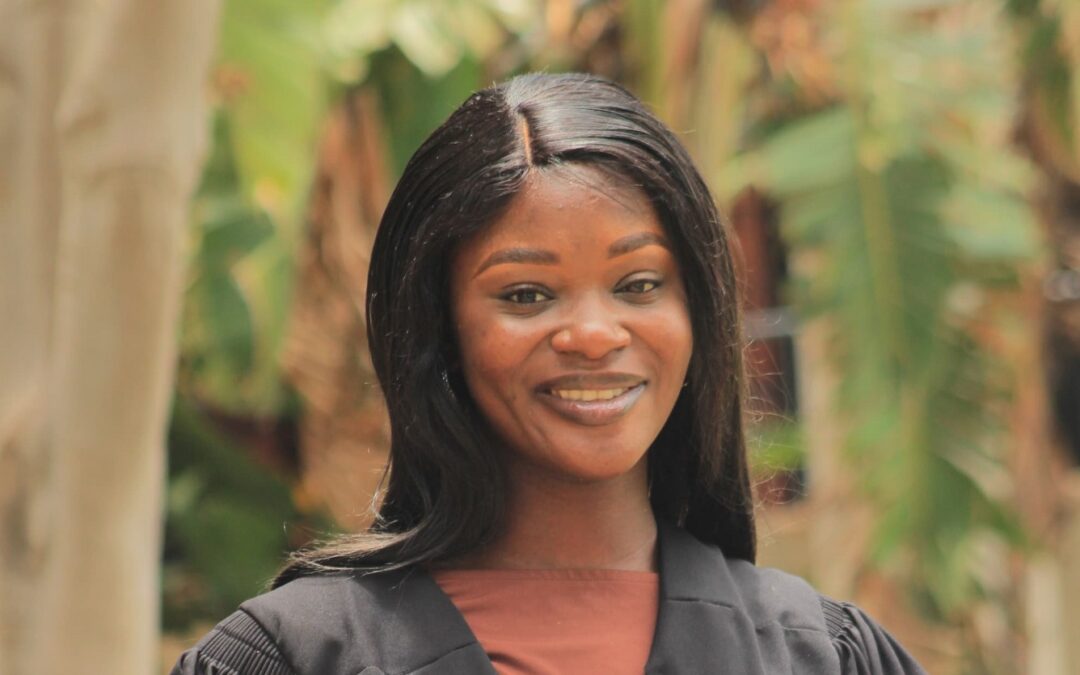
by Lorato | Apr 9, 2025 | Accolades and Achievements, All News, SMU Media, Student Media
Sanyu Kiyonga, a distinguished pharmacy graduate from Sefako Makgatho Health Sciences University (SMU), has been recognised for her outstanding academic performance, securing the Academic Excellence Award for Best Portfolio in Hospital Pharmacy Practice-Based Learning with an impressive 81% mark during the School of Pharmacy Oath Taking Ceremony 2024. This prestigious achievement underscores her dedication to the field of pharmacy and her commitment to improving healthcare services.
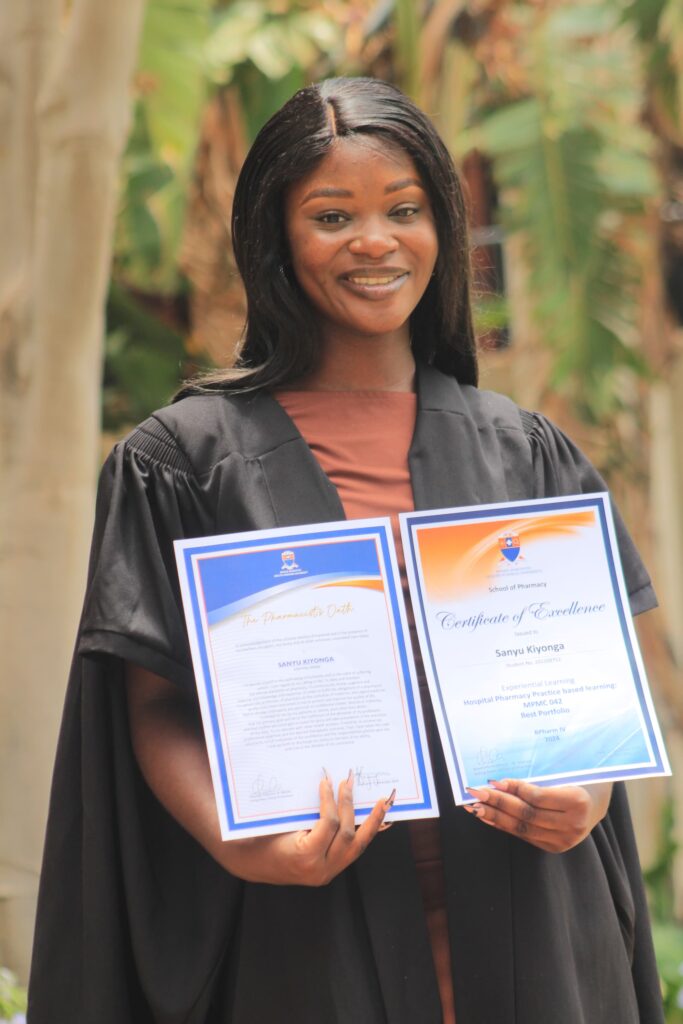 Kiyonga, who pursued her studies at SMU from 2021 to 2024, has demonstrated an unwavering passion for pharmacy, driven by her profound desire to treat patients and contribute to the advancement of medical care. Having grown up in Uganda, where healthcare infrastructure faces considerable challenges, she developed a deep-seated resolve to make a tangible impact in the field. Her experiential learning journey in hospital pharmacy has solidified her expertise and positioned her as a rising leader in pharmaceutical care.
Kiyonga, who pursued her studies at SMU from 2021 to 2024, has demonstrated an unwavering passion for pharmacy, driven by her profound desire to treat patients and contribute to the advancement of medical care. Having grown up in Uganda, where healthcare infrastructure faces considerable challenges, she developed a deep-seated resolve to make a tangible impact in the field. Her experiential learning journey in hospital pharmacy has solidified her expertise and positioned her as a rising leader in pharmaceutical care.
Reflecting on her achievement, Kiyonga expressed gratitude for the opportunity to refine her skills in a hospital setting. “This recognition is not just a personal milestone but a testament to the support I have received from my lecturers, mentors, and peers at SMU. I am deeply passionate about making a difference in patient care, and this award motivates me to keep striving for excellence,” she says.
The Best Portfolio award highlights Kiyonga’s ability to integrate academic knowledge with practical application, a crucial skill in the evolving landscape of healthcare. Her work in hospital pharmacy practice-based learning involved medication management, patient counselling, and collaborative healthcare interventions, all of which are essential in optimising treatment outcomes.
Kiyonga credits her success to the mentorship she received from her lecturer, Jackson Mahlaba, as well as guidance from the hospital manager and other professionals in the field. “I actively sought feedback and dedicated time to refine my portfolio, which ultimately contributed to this achievement,” she notes.
A crucial component of Kiyonga’s education was her experiential learning in hospital pharmacy, which provided her with hands-on experience in inventory management, patient counselling, and teamwork. This exposure reinforced her understanding of pharmacists’ vital role in patient care. “One of the most impactful experiences for me was working alongside other healthcare professionals who were willing to assist and teach me,” she says. “It taught me the importance of patient-centred care and effective communication, both of which are essential skills in pharmacy.”
Success is rarely achieved alone, and Kiyonga acknowledges the unwavering support she received from her family, friends, and academic mentors. She emphasises that time management and seeking help were crucial in overcoming obstacles throughout her academic journey. “Having a strong support system kept me motivated, especially during challenging times,” she says. “I learned the importance of balancing academics with personal well-being and seeking guidance whenever I needed it.”
The culmination of her pharmacy studies was marked by the symbolic oath-taking ceremony, a defining moment in Kiyonga’s journey. “Taking the oath was incredibly significant, as it reaffirmed my commitment to ethical practice and the well-being of my patients,” she shared.
Looking ahead, Kiyonga aspires to contribute meaningfully to the pharmacy profession by leveraging her knowledge and skills to improve patient outcomes. “My goal is to expand my expertise and become a trusted healthcare professional, positively impacting patients’ lives,” she says.
“I am grateful for the support I have received from the School of Pharmacy and SMU. This journey has reinforced my commitment to patient care and professional growth,” she concludes.
By Tumelo Moila

by Lorato | Apr 1, 2025 | Accolades and Achievements, All News, SMU Media, Student Media
In a groundbreaking achievement, Sefako Makgatho Health Sciences University (SMU) Master’s student Nondumiso Nkosi has developed a pioneering diagnostic assay for Hepatitis B, addressing a critical need in regions where the disease is endemic. This innovation has earned her recognition as a rising star in the intellectual property (IP) landscape.
 Nkosi’s journey into innovation and entrepreneurship began with her attendance at the Bio Africa Convention in 2023, where her project was selected for presentation and won the runner-up award. “This recognition was an eye-opener, making me realise the magnitude and potential impact of my work,” she reflects.
Nkosi’s journey into innovation and entrepreneurship began with her attendance at the Bio Africa Convention in 2023, where her project was selected for presentation and won the runner-up award. “This recognition was an eye-opener, making me realise the magnitude and potential impact of my work,” she reflects.
Her diagnostic assay aims to bridge the gap in accessible and efficient Hepatitis B diagnosis, particularly in resource-limited settings. “Current diagnostic methods are often inaccessible or inadequate, making early detection and effective management difficult,” Nkosi explains. My innovation provides a more accessible and efficient solution tailored to the African healthcare landscape.
The collaboration with the Department of Clinical Laboratory Medicine at Nagoya City University Hospital in Japan served as a foundational base for the innovation. “This partnership enabled the development of a diagnostic tool tailored to the unique healthcare challenges in Africa,” Nkosi notes.
With the unwavering support of her supervisor, Dr Omphile Simani, Nkosi’s innovation holds significant potential for the early detection and management of Hepatitis, contributing substantially to public health solutions. “Dr Simani saw the potential in my vision and encouraged me every step of the way,” Nkosi acknowledges.
The SMU Technology Transfer Office (TTO) has been instrumental in supporting Nkosi’s innovation, providing guidance on intellectual property protection and commercialisation. “We are working with Nkosi and Simani to identify potential industry partners to commercialise the assay,” says Mohlatlego Sebola, who is responsible for establishing and operationalising the TTO.
 Nkosi’s achievement is a testament to the university’s commitment to innovation and entrepreneurship. As SMU Acting Vice-Chancellor Professor Tandi Matsha-Erasmus notes: “Our commitment at SMU is clear: we nurture innovation, excellence, and community service. Nkosi’s innovation is a shining example of this commitment.”
Nkosi’s achievement is a testament to the university’s commitment to innovation and entrepreneurship. As SMU Acting Vice-Chancellor Professor Tandi Matsha-Erasmus notes: “Our commitment at SMU is clear: we nurture innovation, excellence, and community service. Nkosi’s innovation is a shining example of this commitment.”
The impact of Nkosi’s innovation extends beyond the academic realm. Hepatitis B is a major global health challenge, ranking as the seventh leading cause of death worldwide. Millions of people, particularly in Africa, suffer from chronic HBV infections, leading to severe liver disease, cirrhosis, and hepatocellular carcinoma.
Nkosi’s diagnostic assay has the potential to save countless lives by providing an accessible and efficient diagnostic solution. Her innovation serves as a beacon of hope for those affected by Hepatitis B, and her story is a testament to the power of dedication, innovation, and collaboration in driving positive change.
As Nkosi continues to break barriers in biomedical innovation, she remains committed to her vision of improving public health outcomes. Her pioneering diagnostic assay for Hepatitis B is a groundbreaking achievement that has the potential to revolutionise public health outcomes.
By Dimakatso Modise
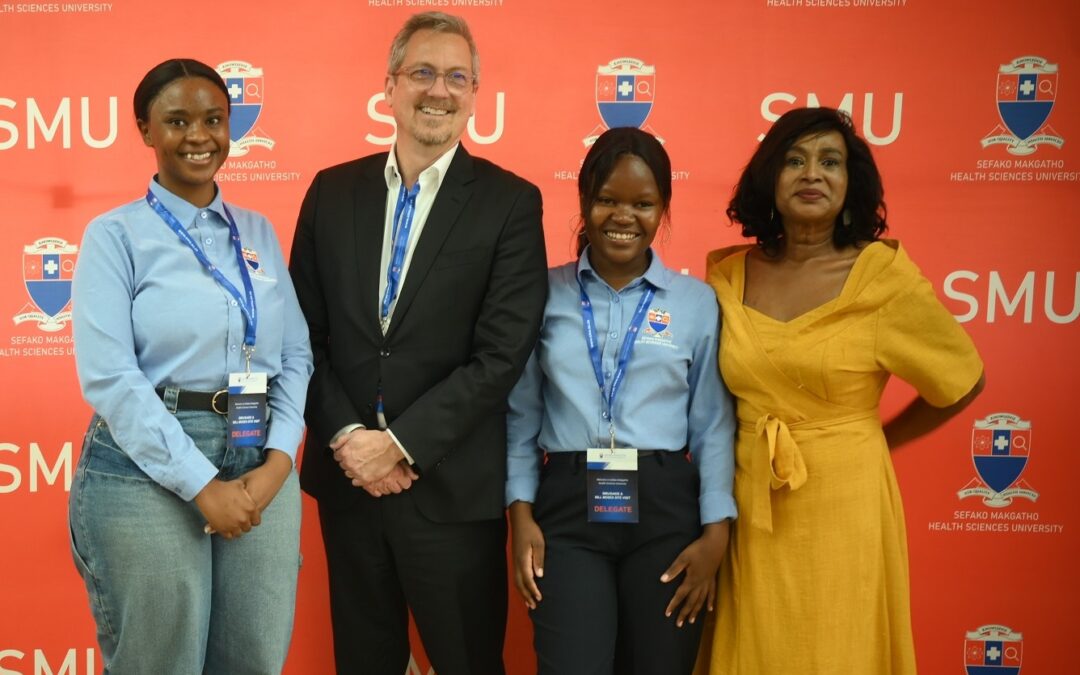
by Lorato | Mar 26, 2025 | Accolades and Achievements, All News, SMU Media, Student Media
Sefako Makgatho Health Sciences University (SMU) recently hosted a distinguished delegation of education leaders, marking a significant step towards strengthening academic collaborations and advancing student academic success initiatives. The visit brought together William “Bill” Moses, Managing Director of the Education Program at The Kresge Foundation, Innocent Nkata, Chief Executive Officer of the South African Institute for Distance Education (SAIDE), and Ashton Maherry, Programme Specialist at SAIDE.
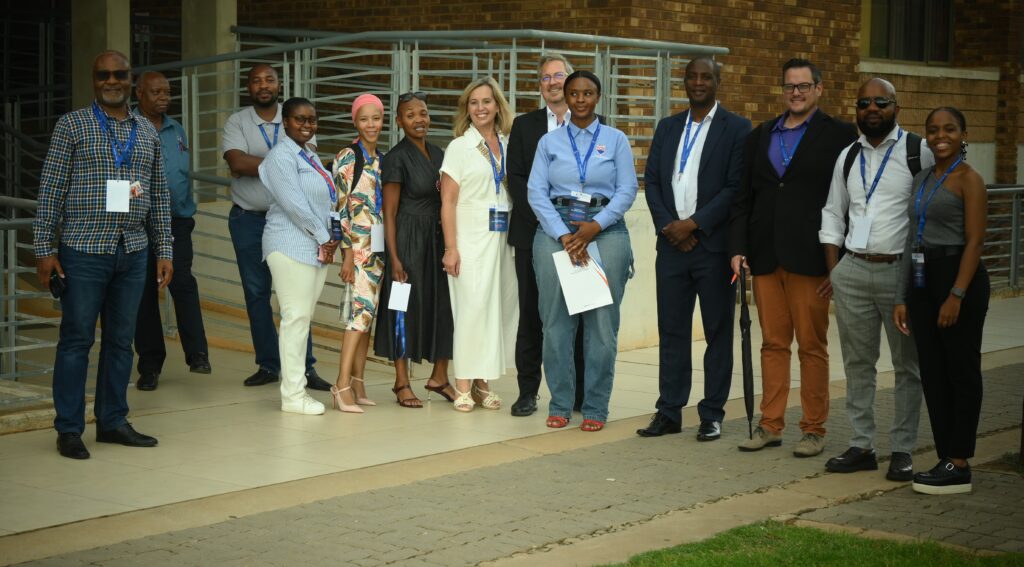 The delegation was warmly welcomed by Dr Elize Venter, Director of the Centre for University Teaching and Learning (CUTL), who highlighted the importance of strategic engagements in enhancing SMU’s academic standing. “Hosting such esteemed funders of student academic success provides us with invaluable insights and opportunities to elevate our teaching and learning practices,” said Venter.
The delegation was warmly welcomed by Dr Elize Venter, Director of the Centre for University Teaching and Learning (CUTL), who highlighted the importance of strategic engagements in enhancing SMU’s academic standing. “Hosting such esteemed funders of student academic success provides us with invaluable insights and opportunities to elevate our teaching and learning practices,” said Venter.
A key highlight of the visit was a luncheon meeting with Acting Vice-Chancellor Professor Tandi Matsha-Erasmus. The discussions focused on potential collaborations between SMU, The Kresge Foundation, and SAIDE, with the aim of developing initiatives that support student success and institutional growth.
Matsha-Erasmus expressed her enthusiasm for the engagement, stating, “Partnerships with forward-thinking organisations like The Kresge Foundation and SAIDE are crucial for driving impactful change in higher education. These discussions open doors for innovative projects that will benefit both our students and academic staff.”
To provide the delegation with a deeper understanding of SMU’s current landscape, they were presented with an “SMU at a Glance” overview. The presentation detailed the university’s academic focus, institutional needs, and the various programmes in place to enhance student learning and research.
Dr Jeffrey Mabelebele, Acting Deputy Vice-Chancellor: Academic and Research, played a pivotal role in these discussions, sharing insights into SMU’s commitment to research excellence and student support. “Our institution is dedicated to fostering a research-driven academic environment that equips students with the skills necessary to thrive in the evolving global landscape,” said Mabelebele.
As part of their visit, the delegation was given an immersive campus tour led by SMU Kresge-funded data analytics, Sewela Tshegofatso and Mabeba Onalerena, SRC Deputy President, Ntshadi Bokaba, and the SRC Secretary General, Fhulufhelo Ntsieni. This team of students guided the guests through key areas of the university, offering them valuable insights into the student experience and providing a firsthand look at student life, campus facilities, and academic support structures. Visited places on campus included the Anatomy Museum, Skills Centre, student residences, and campus health. At the close of the visit, the SMU choir graced the occasion, and Venter presented the delegates with tokens of appreciation.
Reflecting on the visit, the delegation expressed their appreciation for SMU’s commitment to academic excellence and student development. Bill Moses praised the university’s initiatives, stating, “SMU’s dedication to creating an inclusive and high-quality learning environment is truly commendable. The commitment of its leadership and faculty to student success is evident, and we look forward to exploring avenues of support that align with our mission to enhance educational outcomes.”
Innocent Nkata echoed these sentiments, adding, “The proactive approach taken by SMU in addressing educational challenges aligns with SAIDE’s objectives. This engagement has opened up new possibilities for collaboration, and we are excited about the opportunities that lie ahead.”
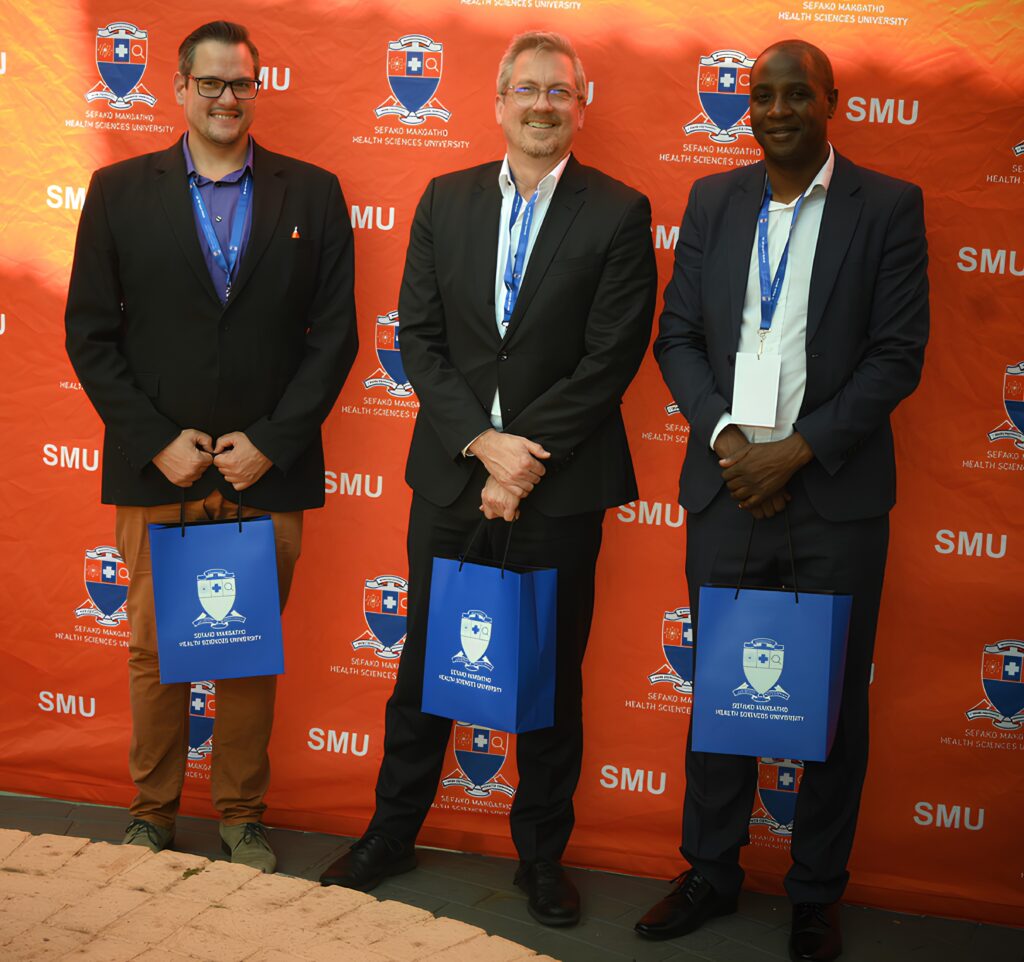 Ashton Maherry also expressed optimism about future collaborations, saying, “It is inspiring to witness the passion and dedication of SMU’s leadership towards student success. There is a clear alignment between our goals, and I am confident that our partnership will yield impactful outcomes.”
Ashton Maherry also expressed optimism about future collaborations, saying, “It is inspiring to witness the passion and dedication of SMU’s leadership towards student success. There is a clear alignment between our goals, and I am confident that our partnership will yield impactful outcomes.”
Dr Joshua Maliavusa, Manager of Student Academic Support at CUTL, emphasised the university’s commitment to ensuring students receive the necessary resources to excel academically. “Our student support initiatives are designed to provide tailored academic assistance and create an environment that enables learners to reach their full potential,” he said.
The visit not only strengthened SMU’s relationships with global education partners but also laid the groundwork for meaningful collaborations that will shape the university’s future. The discussions held during the visit are expected to lead to actionable strategies that support student learning, institutional innovation, and academic development.
As SMU continues to grow as a leading institution in health sciences education, partnerships with organisations such as The Kresge Foundation and SAIDE will play a crucial role in advancing its mission. The university remains committed to fostering an environment that enables students to thrive and contribute to the broader fields of health sciences and research.
With this visit marking the beginning of new collaborative efforts, SMU is poised to further enhance its academic and research capabilities, ultimately benefiting both its students and the wider education sector.
By Dimakatso Modise

 The collaboration was led by Professor Martha Chadyiwa, who initiated discussions between SMU and TIIKM. Under the leadership of Professor Mathildah Mokgatle, the Department of Public Health played a pivotal role, with senior faculty members representing SMU.
The collaboration was led by Professor Martha Chadyiwa, who initiated discussions between SMU and TIIKM. Under the leadership of Professor Mathildah Mokgatle, the Department of Public Health played a pivotal role, with senior faculty members representing SMU.


 The Technology Transfer Office (TTO) at SMU facilitated the patent filing process, highlighting the university’s dedication to translating research into tangible health solutions. This development not only underscores SMU’s role in addressing pressing health challenges but also positions the institution at the forefront of innovation in the health sciences sector.
The Technology Transfer Office (TTO) at SMU facilitated the patent filing process, highlighting the university’s dedication to translating research into tangible health solutions. This development not only underscores SMU’s role in addressing pressing health challenges but also positions the institution at the forefront of innovation in the health sciences sector.
 The true measure of a university lies not only in the qualifications it confers but in the calibre of the individuals it sends into the world. SMU’s contribution to healthcare, both nationally and globally, can be traced through the profound influence of its alumni—many of whom occupy key leadership roles, drive medical innovation, and deliver services to communities that have historically been underserved. They are healthcare professionals, scientists, administrators, policymakers and thought leaders. Together, they represent a living, evolving embodiment of SMU’s mission.
The true measure of a university lies not only in the qualifications it confers but in the calibre of the individuals it sends into the world. SMU’s contribution to healthcare, both nationally and globally, can be traced through the profound influence of its alumni—many of whom occupy key leadership roles, drive medical innovation, and deliver services to communities that have historically been underserved. They are healthcare professionals, scientists, administrators, policymakers and thought leaders. Together, they represent a living, evolving embodiment of SMU’s mission.
 Kiyonga, who pursued her studies at SMU from 2021 to 2024, has demonstrated an unwavering passion for pharmacy, driven by her profound desire to treat patients and contribute to the advancement of medical care. Having grown up in Uganda, where healthcare infrastructure faces considerable challenges, she developed a deep-seated resolve to make a tangible impact in the field. Her experiential learning journey in hospital pharmacy has solidified her expertise and positioned her as a rising leader in pharmaceutical care.
Kiyonga, who pursued her studies at SMU from 2021 to 2024, has demonstrated an unwavering passion for pharmacy, driven by her profound desire to treat patients and contribute to the advancement of medical care. Having grown up in Uganda, where healthcare infrastructure faces considerable challenges, she developed a deep-seated resolve to make a tangible impact in the field. Her experiential learning journey in hospital pharmacy has solidified her expertise and positioned her as a rising leader in pharmaceutical care.
 Nkosi’s journey into innovation and entrepreneurship began with her attendance at the Bio Africa Convention in 2023, where her project was selected for presentation and won the runner-up award. “This recognition was an eye-opener, making me realise the magnitude and potential impact of my work,” she reflects.
Nkosi’s journey into innovation and entrepreneurship began with her attendance at the Bio Africa Convention in 2023, where her project was selected for presentation and won the runner-up award. “This recognition was an eye-opener, making me realise the magnitude and potential impact of my work,” she reflects. Nkosi’s achievement is a testament to the university’s commitment to innovation and entrepreneurship. As SMU Acting Vice-Chancellor Professor Tandi Matsha-Erasmus notes: “Our commitment at SMU is clear: we nurture innovation, excellence, and community service. Nkosi’s innovation is a shining example of this commitment.”
Nkosi’s achievement is a testament to the university’s commitment to innovation and entrepreneurship. As SMU Acting Vice-Chancellor Professor Tandi Matsha-Erasmus notes: “Our commitment at SMU is clear: we nurture innovation, excellence, and community service. Nkosi’s innovation is a shining example of this commitment.”
 The delegation was warmly welcomed by Dr Elize Venter, Director of the Centre for University Teaching and Learning (CUTL), who highlighted the importance of strategic engagements in enhancing SMU’s academic standing. “Hosting such esteemed funders of student academic success provides us with invaluable insights and opportunities to elevate our teaching and learning practices,” said Venter.
The delegation was warmly welcomed by Dr Elize Venter, Director of the Centre for University Teaching and Learning (CUTL), who highlighted the importance of strategic engagements in enhancing SMU’s academic standing. “Hosting such esteemed funders of student academic success provides us with invaluable insights and opportunities to elevate our teaching and learning practices,” said Venter. Ashton Maherry also expressed optimism about future collaborations, saying, “It is inspiring to witness the passion and dedication of SMU’s leadership towards student success. There is a clear alignment between our goals, and I am confident that our partnership will yield impactful outcomes.”
Ashton Maherry also expressed optimism about future collaborations, saying, “It is inspiring to witness the passion and dedication of SMU’s leadership towards student success. There is a clear alignment between our goals, and I am confident that our partnership will yield impactful outcomes.”